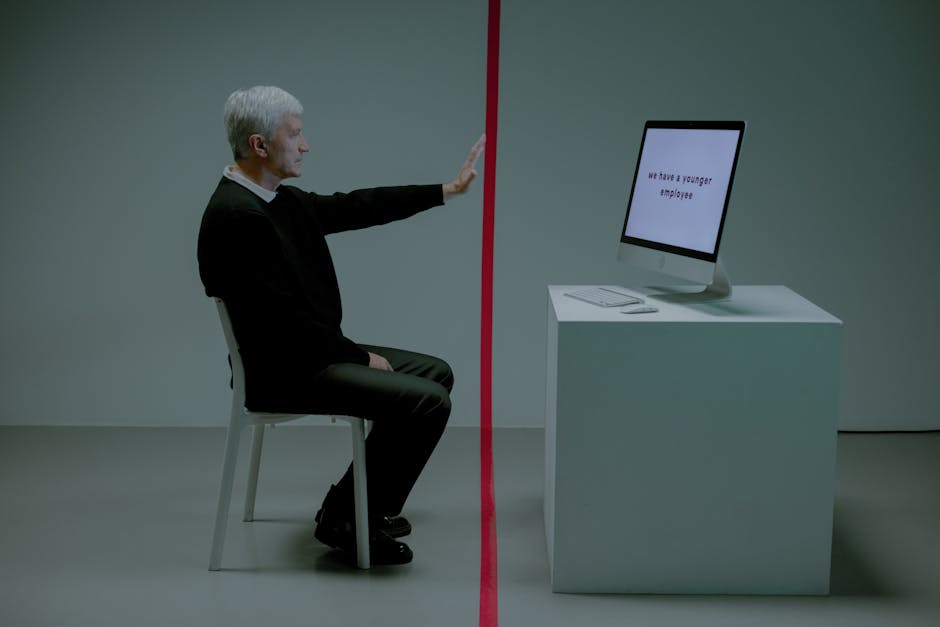Understanding employee discrimination
Employee discrimination is when unfair treatment happens at work based on characteristics such as race, gender, age, or disability. It is illegal to discriminate against employees in hiring, firing, promotions, pay, or any other work-related issues. Understanding employee discrimination is crucial to recognizing when it occurs and knowing how to address it. Keep an eye out for signs of discrimination, such as being treated differently than others or facing unfair obstacles in your job. It’s essential to be aware of your rights and know how to take action to protect yourself from discriminatory practices.

Types of discrimination in the workplace
Harassment and unfair treatment due to factors like race, gender, age, religion, or disability are common in the workplace. Common types of discrimination include racial discrimination, gender discrimination, age discrimination, religious discrimination, and disability discrimination. It’s essential to be aware of these forms of discrimination to recognize and address them if they occur at work.
Recognizing signs of discrimination
Watch out for signs of discrimination at your workplace. It could manifest through actions like being treated unfairly or differently due to factors like your race, gender, age, or disability. Discrimination may also show up in comments or jokes that make you feel uncomfortable or targeted. Monitor changes in how you are treated and trust your instincts if something feels off. Taking note of these signs can help you address discrimination effectively and seek the support you need.
How to address discrimination at work
When facing discrimination at work, it’s important to first speak directly to the person engaging in discriminatory behavior. Make sure to clearly communicate how their actions are affecting you and request that they stop. If the behavior persists, reach out to your HR department to file a formal complaint. Document all instances of discrimination, including dates, times, and witnesses. If necessary, seek legal advice from an employment lawyer to understand your rights and options for further action. Remember, addressing discrimination promptly and assertively is crucial to creating a safe and inclusive work environment for yourself and your colleagues.
Legal rights and protections for employees
Employment discrimination laws safeguard employees from unfair treatment at work. These laws protect employees based on characteristics like race, gender, age, and disability. If you face discrimination, you have rights. Here are a few key points to remember:
- The Civil Rights Act of 1964 prohibits discrimination based on race, color, religion, sex, or national origin.
- The Age Discrimination in Employment Act protects workers over the age of 40 from age-based discrimination.
- The Americans with Disabilities Act ensures that disabled employees are not unjustly treated.
Steps to take when facing discrimination
If you are facing discrimination at work, it is crucial to take certain steps to protect your rights. Here are some actions you can consider:
- Document incidents: Keep a record of any discriminatory behaviors or actions directed towards you at work.Report to HR: Inform your Human Resources department about the discrimination you are experiencing.Seek legal advice: Consider consulting with a lawyer specializing in employment law to understand your legal options.File a complaint: If internal measures are not effective, you can file a discrimination complaint with the Equal Employment Opportunity Commission (EEOC).Follow-up: Stay informed on the progress of your complaint and continue to advocate for your rights in the workplace.
Reporting discrimination to HR or management
If you’re facing discrimination at work, you can report it to HR or management. It’s important to document the incidents with specific details like dates, times, and witnesses. You should also make sure to follow your company’s policies and procedures for reporting discrimination. Remember that it is your right to work in a safe and inclusive environment, and reporting discrimination is a step towards ensuring that.
Seeking support and resources
When facing employee discrimination, it’s essential to seek support and resources to understand your rights and options. Here are some steps you can take:
- Talk to HR or your supervisor about the discrimination you are experiencing.Research your company’s policies on discrimination and reporting procedures.Reach out to organizations like the Equal Employment Opportunity Commission (EEOC) for guidance and support.Consult with a legal advisor to understand your legal rights and explore potential courses of action.
Remember, you are not alone, and there are resources available to help you navigate through this challenging situation.
Navigating the investigation process
When facing employee discrimination at work, understanding the investigation process is crucial. Here are some key points to keep in mind:
- It’s important to report any discrimination or harassment to the appropriate department within your organization.
- The investigation process typically involves interviewing witnesses, collecting evidence, and reviewing relevant policies.
- During the investigation, make sure to provide honest and detailed information to assist the investigator.
- It’s essential to cooperate with the investigation and avoid any actions that could be seen as retaliation.
- After the investigation is completed, the findings will be used to determine the appropriate course of action.
Empowering yourself in the face of workplace discrimination
When facing workplace discrimination, knowing your rights is crucial. Understanding anti-discrimination laws can empower you to take action. Here are ways to empower yourself in the face of workplace discrimination:
- Familiarize yourself with your company’s anti-discrimination policies and procedures.
- Keep detailed records of any discriminatory actions or behaviors you experience.
- Consider seeking guidance from a legal professional or a human resources representative.
- Stand up for yourself and assert your rights in a respectful and professional manner.
Remember, you have the right to a discrimination-free workplace, and taking steps to empower yourself can lead to positive outcomes.

